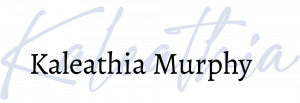The Power of Restraint
Just because I can doesn’t mean I should. It’s a simple truth, yet one I’ve come to deeply appreciate over time. I have many liberties at my disposal—freedoms I could easily exercise. When I was younger, I thought adulthood was all about having the ability to do anything I wanted, as long as it didn’t break the law. And for a time, I shamelessly explored that mindset.
Yes, this girl has done some things. Things I’m not particularly proud of, but they’ve taught me valuable lessons. Those experiences helped shape who I am today—a person of restraint. Or maybe I should say it’s a journey of wisdom, knowledge, and understanding. With each step forward, I’ve learned that knowing the right thing to do comes with a weight that’s impossible to ignore. Once you know better, it’s hard to go back.
Restraint isn’t about limitation; it’s about choice. It’s about realizing that just because I can doesn’t mean I should. It’s the understanding that some freedoms aren’t worth the cost, and some desires aren’t worth chasing. This kind of self-discipline didn’t happen overnight—it’s a lesson learned through mistakes, reflection, and, most importantly, growth.
Over time, I’ve discovered the beauty of boundaries. They don’t confine me; they protect me. They allow me to live intentionally, honoring the values I hold dear. Restraint isn’t always easy, but it’s always worth it. Because when you know the right thing to do, and you choose to follow through, you’re no longer just living—you’re thriving.
Wisdom, once gained, can’t be undone. And for that, I’m grateful.
